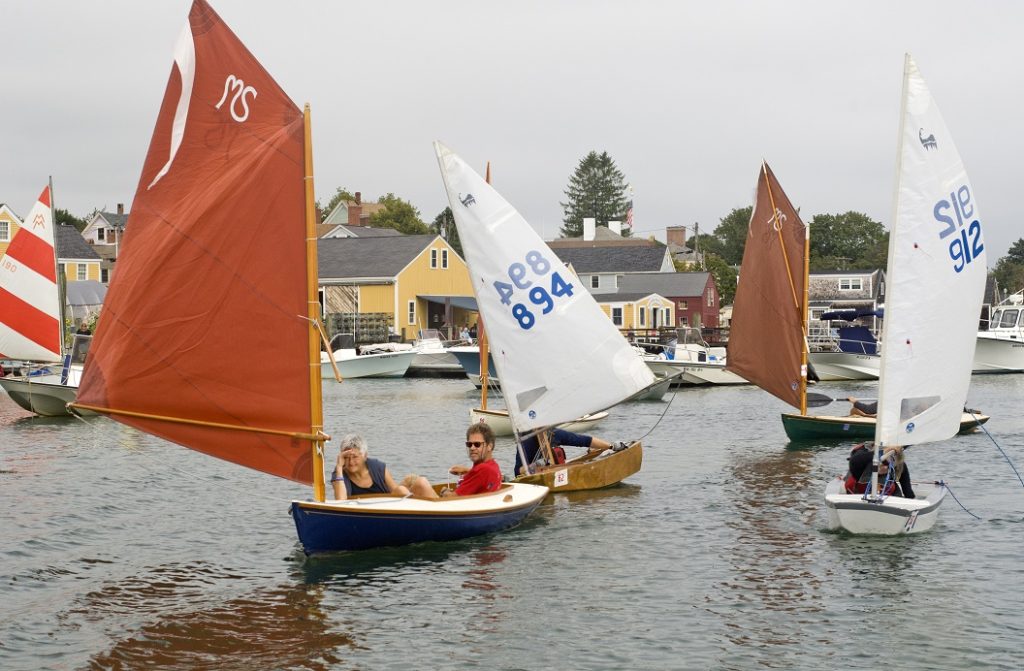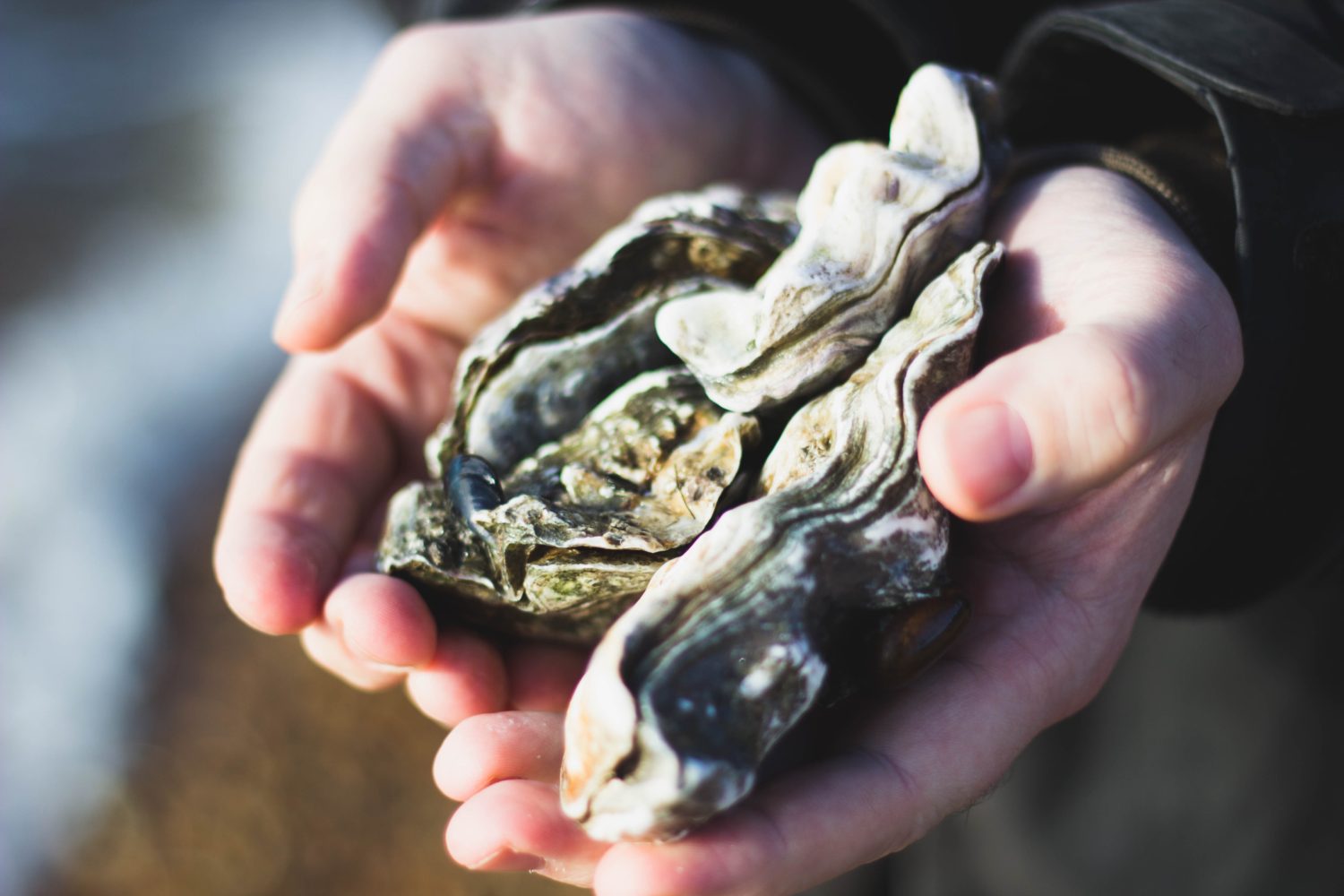By Ronald Trahan

“Recycled oyster shells are vital to our environment,” explains Brianna Group, Oyster Conservation Coordinator for the New Hampshire chapter of The Nature Conservancy. She will serve as a timer for the oyster shucking competition to be held as part of the First Annual Riverfest celebration on June 1st in Portsmouth. The fun competition will include shuckers from area restaurants, as well as anyone attending Riverfest who wishes to compete.
Many people agree: oysters are a delicacy. But after you’ve slurped them down, what to do with the ‘used’ shells? Turns out oysters are prolific reproducers. Adult oysters release millions of fertilized eggs in the summer months. During their development, budding oysters may travel great distances from where they were originally released, but they need one indispensable component in order to survive: the shells of their forebears.


“Recycling oyster shells is a critical source of future oysters,” says David Beattie, program coordinator for the Coastal Conservation Association of New Hampshire: CCANH. “To reach maturity, young oysters must attach themselves to a hard substrate — ideally another oyster shell. If there is no suitable foundation, a young oyster will die. Where oysters are harvested, time and again, there are escalating oyster shortages due to a lack of empty shells or hard surfaces for young oysters to make a home,” says Beattie, a judge for the shucking competition.
“Recycling oyster shells is a critical source of future oysters,” says David Beattie, program coordinator for the Coastal Conservation Association of New Hampshire: CCANH. “To reach maturity, young oysters must attach themselves to a hard substrate — ideally another oyster shell. If there is no suitable foundation, a young oyster will die. Where oysters are harvested, time and again, there are escalating oyster shortages due to a lack of empty shells or hard surfaces for young oysters to make a home,” says Beattie, a judge for the shucking competition.

Indeed, used oyster shells are, by far, the most favored substrate for growing baby oysters. Since 2009, Beattie says CCANH volunteers have been retrieving used shells weekly from eight area restaurants to supply the Oyster Shell Recycling Program for Great Bay. Participating restaurants include Jumpin’ Jay’s Fish cafe, The Franklin Oyster House, Robert’s Maine Grill, Newick’s, Riverworks, The Old Salt Restaurant, and York River Landing.
“The oyster recycling program is an all-volunteer affair,” says Beattie. “For that reason, we are very pleased to be part of the First Annual Riverfest event in order to help raise awareness of the program and its need for volunteers.” Of course, there will also be plenty of fresh oysters to eat at Riverfest, too. The oyster shucking competition will be but one part of the daylong family events of Riverfest.
All Riverfest event information and tickets, including entry into the Round Island Regatta, are available at piscataquariverfest.com or in person at 60 Marcy Street, Portsmouth. Admission to Riverfest is $15 for adults and $8 for children, with discounts available to members, military, and seniors. Special discounts at various restaurants and other consumer venues throughout the region will be available with the purchase of admission to Riverfest.

This post was originally published in May, 2019 by the Gundalow Company, a proud partner of the Every Drop Alliance.
#EveryDropMatters


